
The Bulubandi Project in Iganga, Uganda is working to improve conditions at the Bulubandi Primary school. The school houses over a thousand pupils and lacks adequate access to clean water, sanitation, electrical and classroom infrastructure. The Bulubandi Project completed a successful assessment trip during May of 2019. The current phase of the project involves designing and implementing a comprehensive rainwater catchment system for the school’s potable water needs.
Bulubandi Project Meetings are expected to resume Fall 2020.
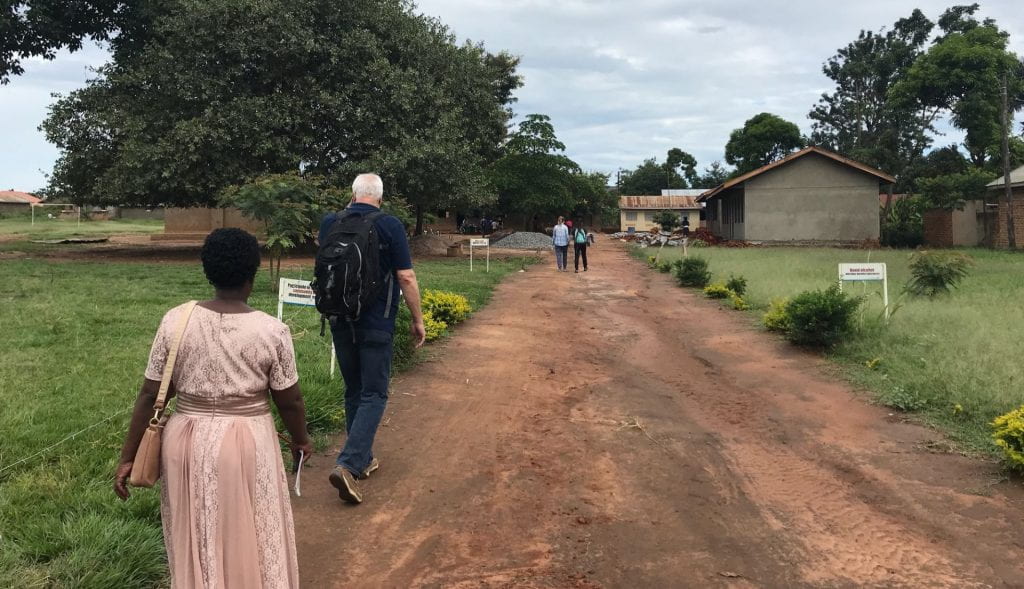
Path leading up to Bulubandi PS.
Project To-Date
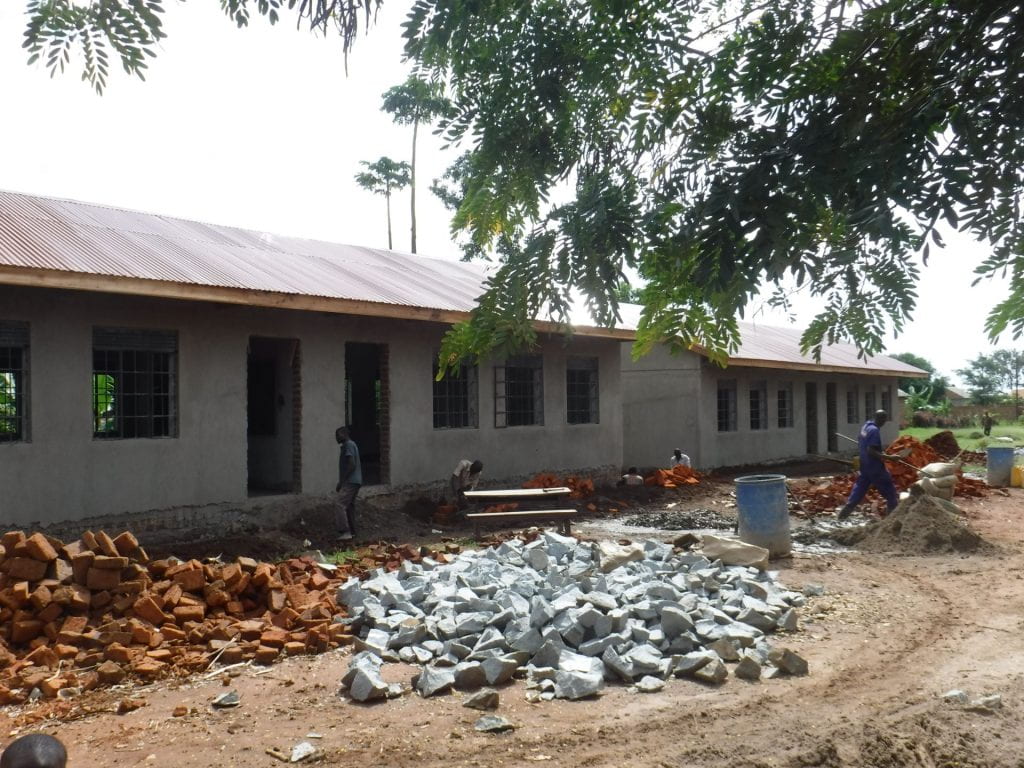
Two new classroom buildings that were under construction during the assessment trip.
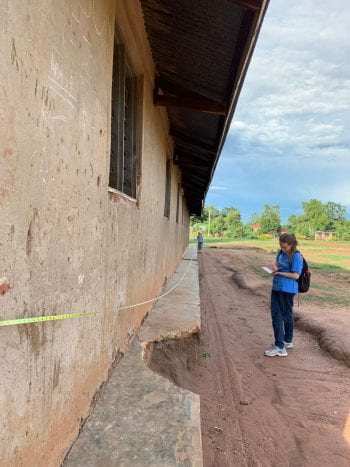
Taking Measurements of the all of the Bulubandi PS buildings.
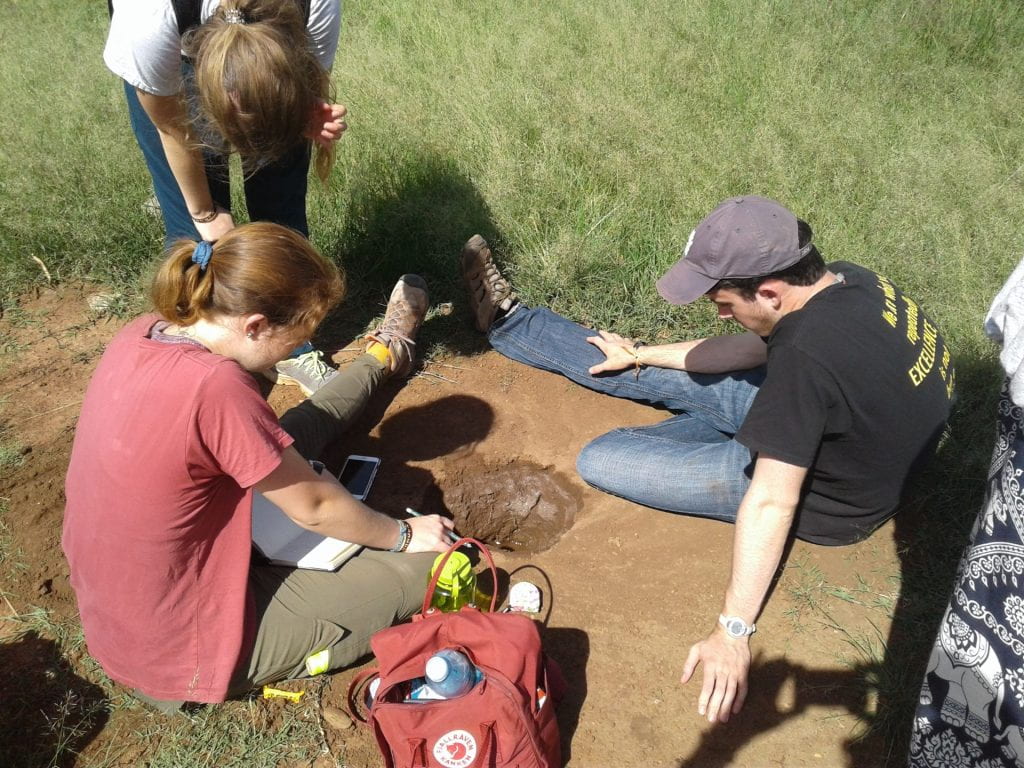
The team conducting a percolation test to gather information about soil type and soil properties.
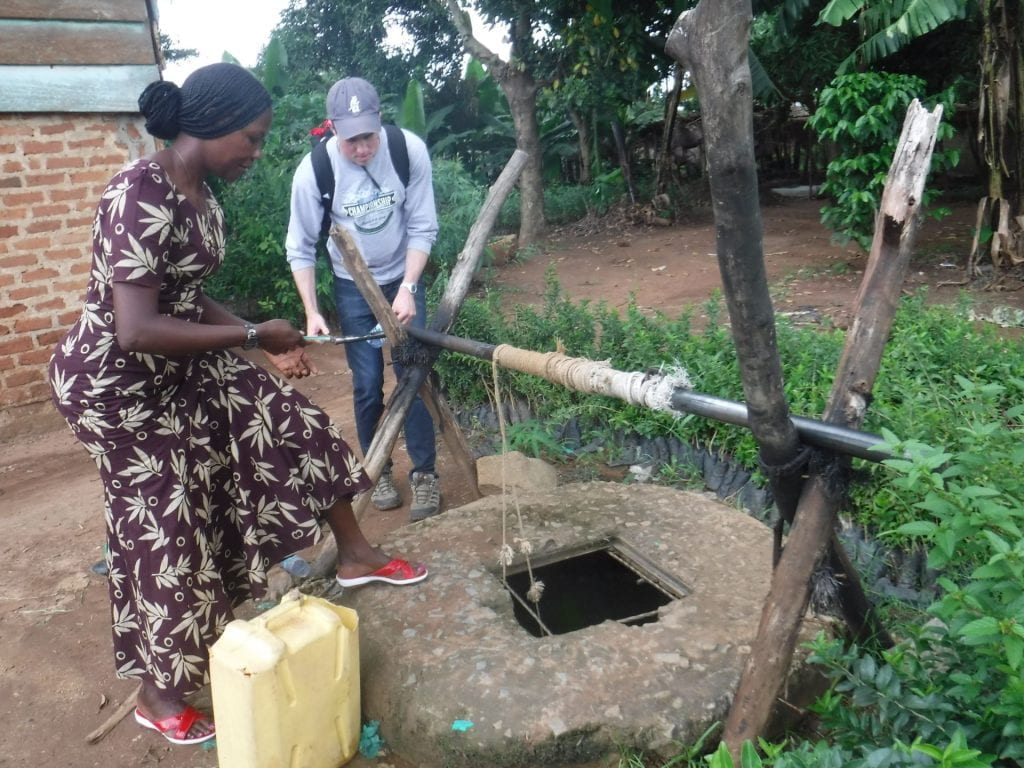
Ben and Rebecca, the headteacher at the time, collecting water from a neighboring well.
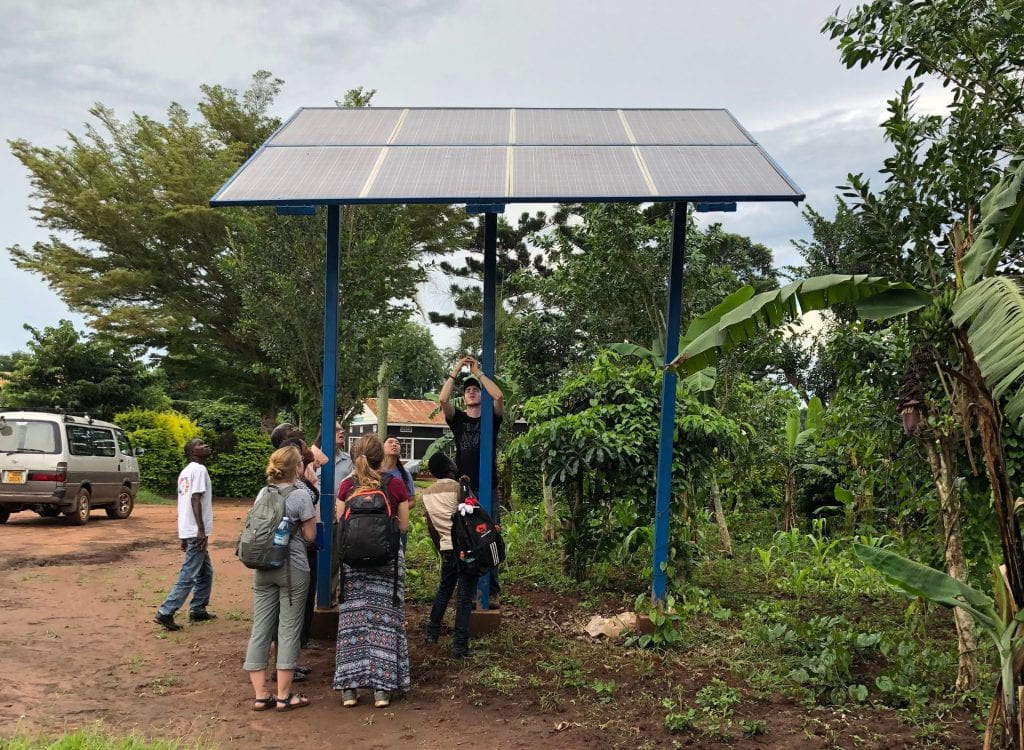
Examining solar panels from a neighboring project. The administration at the Bulubandi Primary School brought us to this location to show us a good example of a local, sustainable water distribution project.
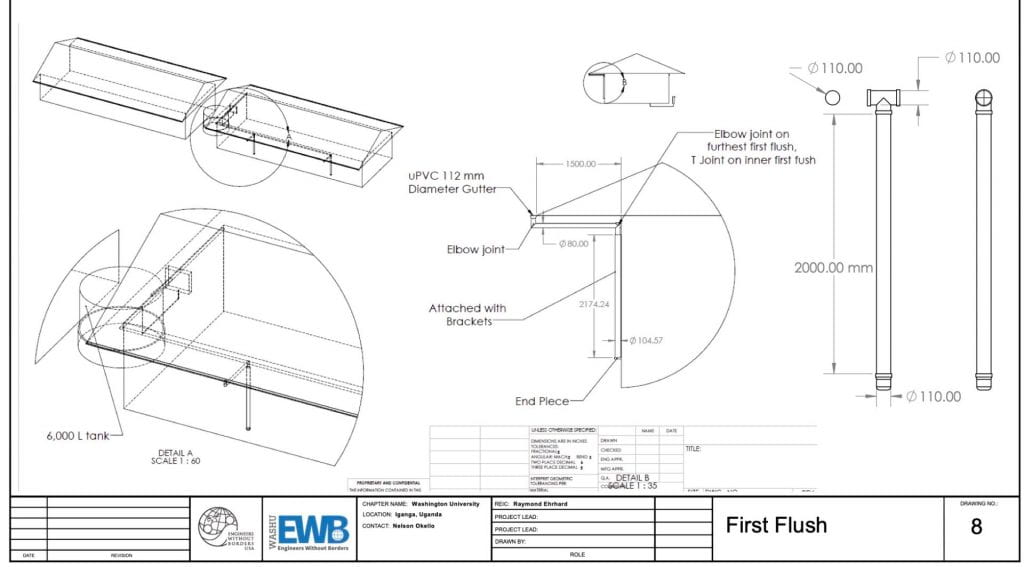
One of the CAD drawings produced entirely by students depicting the first flush aspect of the design. The first flush prevents contaminants from entering the water system by diverting the first rainfall, which washes away built up dirt and debris, from the main storage tank.
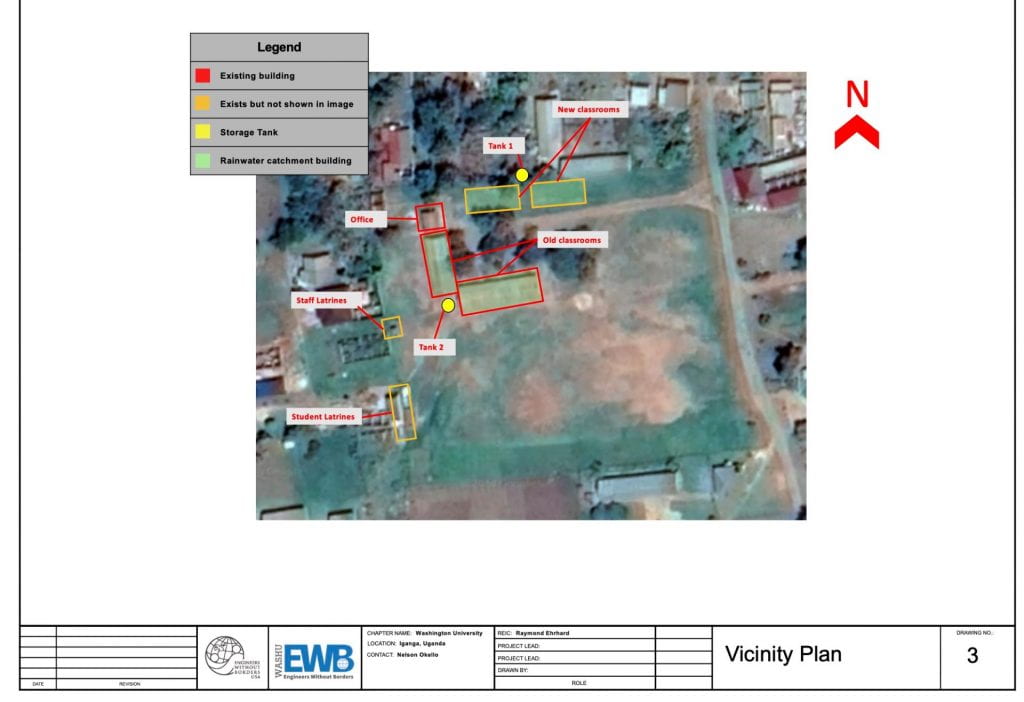
Vicinity Map of Bulubandi PS depicting buildings and the proposed location for storage tanks.
Current Bulubandi Team Leads (2024-2025)
David D’Alessandro
d.a.dalessandro@wustl.edu

David is a senior from Massachusetts majoring in mechanical engineering with a minor in Finance. This is his 3rd year on the project with a focus on the storage and distribution side of the project. During his free time, he enjoys golfing and playing tennis.
Riley Merrigan
merrigan.r@wustl.edu

Riley is a senior student-athlete from San Diego, California majoring in chemical engineering and minoring in energy engineering. He has been a member of the Bulubandi Project since his sophomore year working on the storage and distribution system for the water. Apart from playing on the WashU football team, he enjoys hanging out with friends, playing video games, and golf.
Bulubandi Project Team 2020-2021
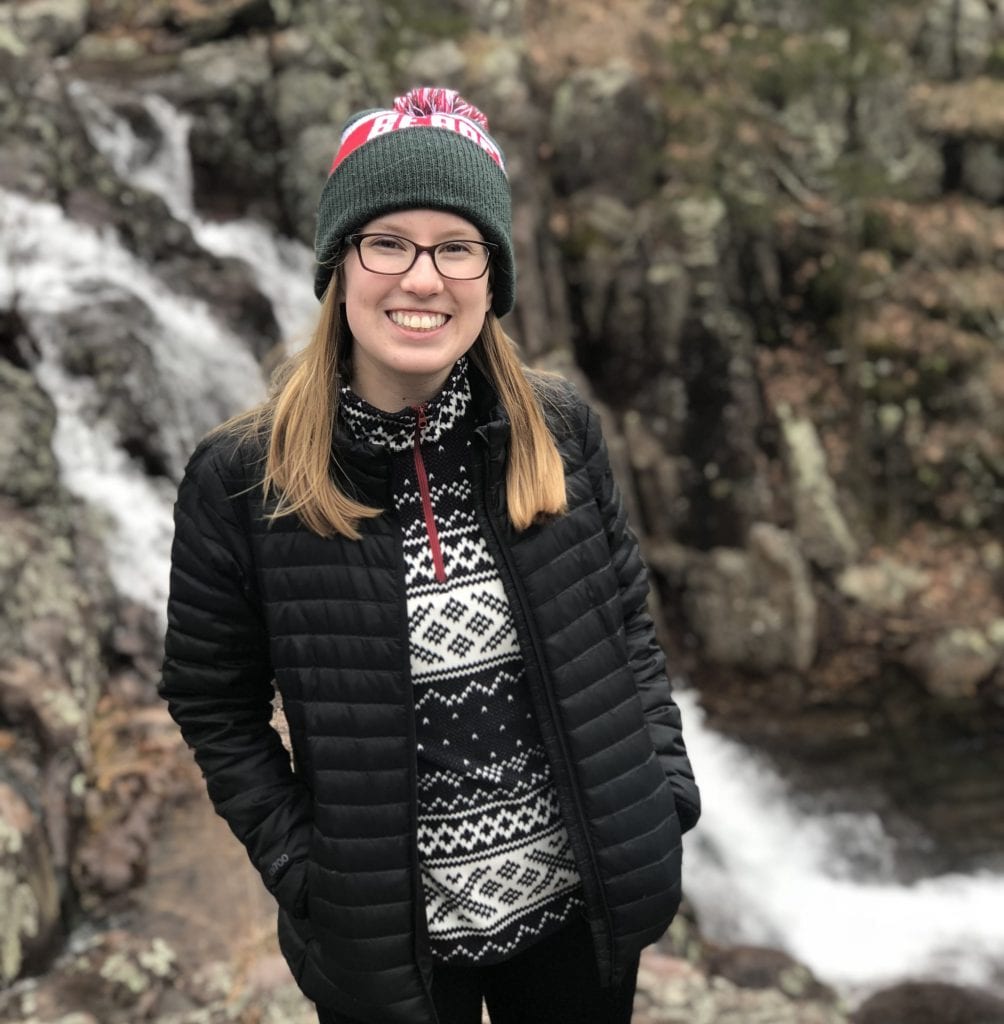
Emily Ray – Project Lead
emily.ray@wustl.edu
Emily is a senior from Raleigh, North Carolina studying biomedical and electrical engineering. As Bulubandi Project Lead, she is working with the Bulubandi Primary School to provide clean drinking water, combat female menstrual stigma, and improve sanitation. Emily assists on all aspects of the project, and is the main contact person for interested students, professional mentors, and community members. Outside of EWB, Emily enjoys running and conducts neural engineering research.
Mae Hubel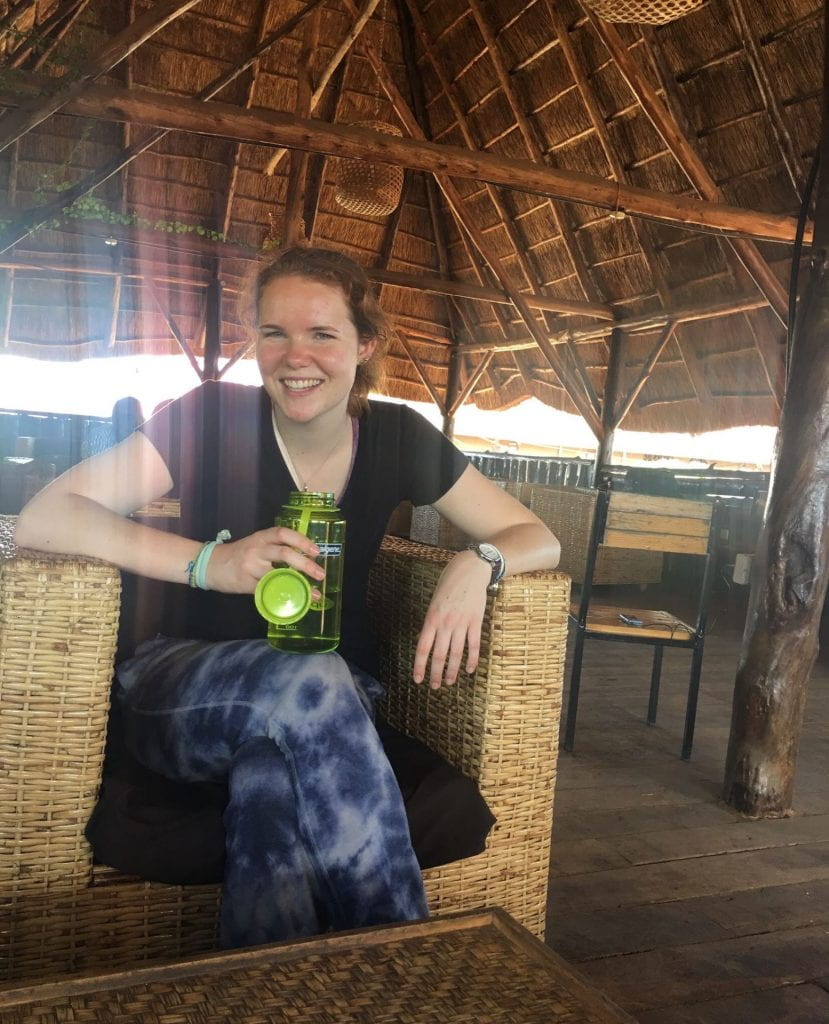
maehubel@wustl.edu
Mae is a junior mechanical engineering student from Mountain View, California and has been working on the Bulubandi Project for the past 2 years. In her current role as water storage & distribution lead, Mae spends time researching storage tank and tank platform options, as well as contacting Ugandan contractors and tank vendors. She collaborates with other team members to brainstorm piping and tap layouts around the school, and map out these designs using CAD. Outside of EWB, Mae works with several mentoring programs, plays her sax in WashU jazz groups, drinks copious amounts of tea, and tries spend as much time outside as possible.
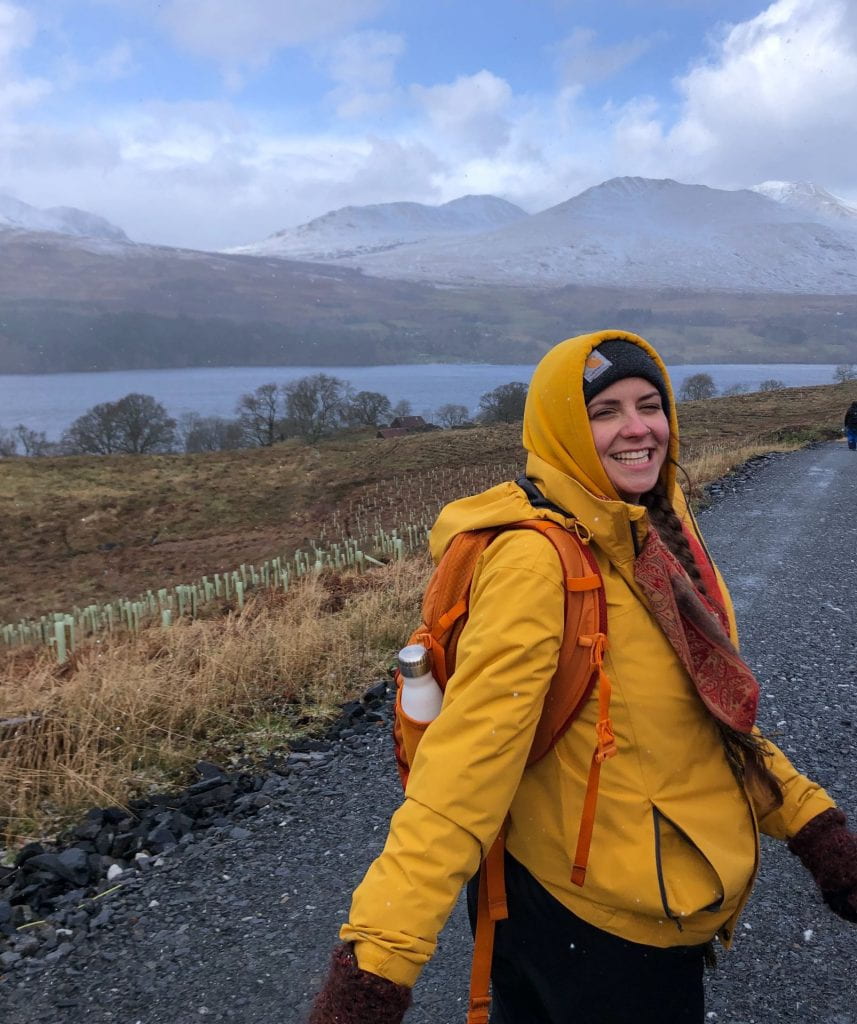 Vee Dols
Vee Dols
vdols@wustl.edu
Vee is from Cedarburg, Wisconsin and she has recently come home from a semester abroad in Scotland (cut short because of COVID) and is returning as a senior studying chemical and environmental engineering. As the previous Sanitation and Safe Space Lead before her departure for Scotland, Vee has done much research on ways to improve health and hygiene in the Bulubandi community, as well as possible structures that could be built for the benefit of young, menstruating girls. In her free time Vee enjoys hiking, playing music, producing art, and cooking up new creations in her kitchen.
Louise Yang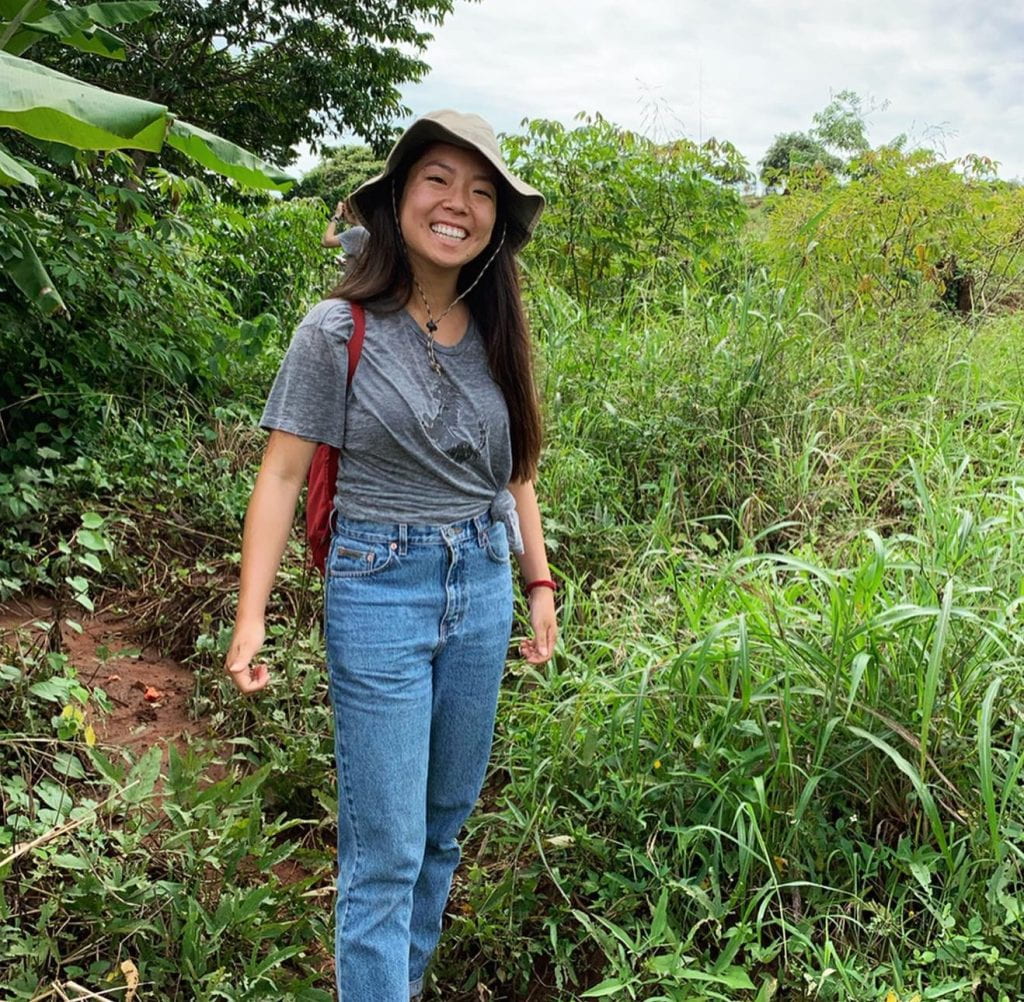
louise.yang@wustl.edu
Louise is a dual-degree student, now obtaining her masters, from the suburbs of Kansas City. She originally studied neuroscience at Kenyon College, and is now an electrical engineering major. As sanitation lead Louise researches ways to improve the health and hygiene of the Bulubandi community, such as through better hand washing and menstrual hygiene practices. In her free time, she enjoys snacking on cheese and crackers.
Ben Johnston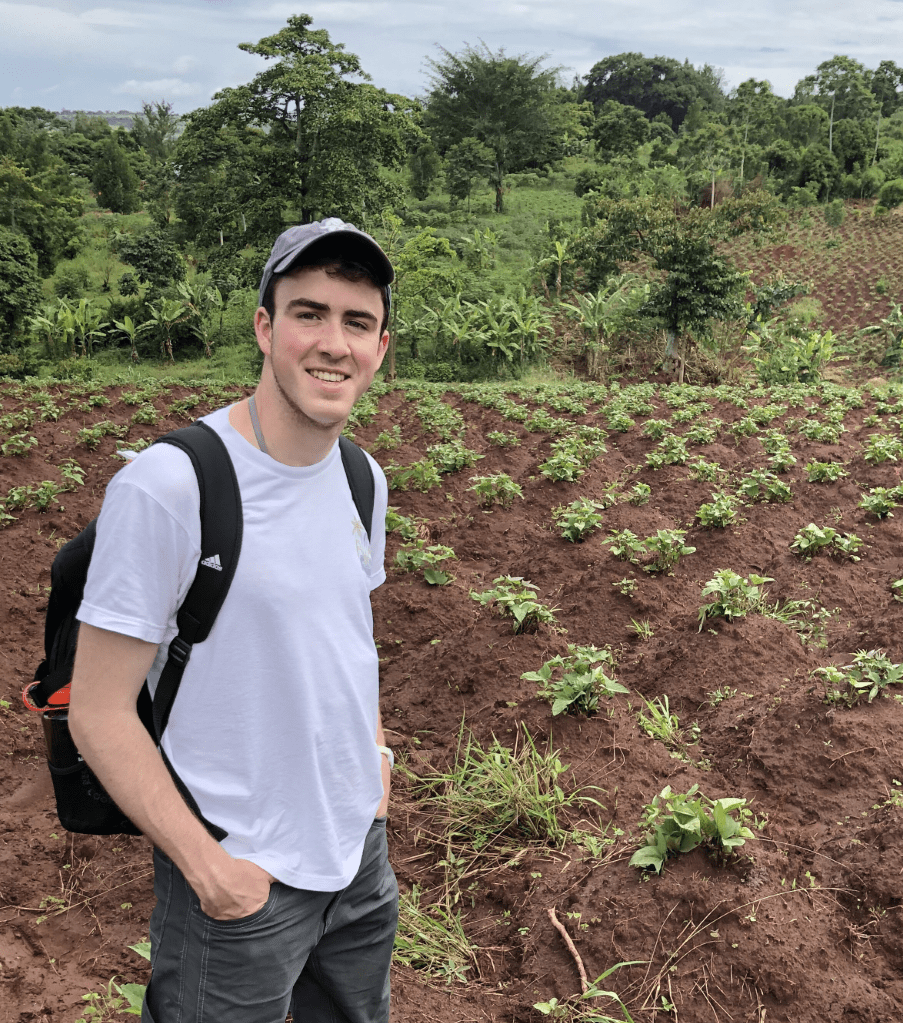
bbjohnston@wustl.edu
Ben is a senior from LaGrange, Illinois studying biomedical engineering and currently working on the Bulubandi project. As water lead Ben keeps track of research into pumps, well specifications, and different potential water contaminants. Outside of EWB, Ben is a member of the varsity swim team and enjoys listening to music and hiking.